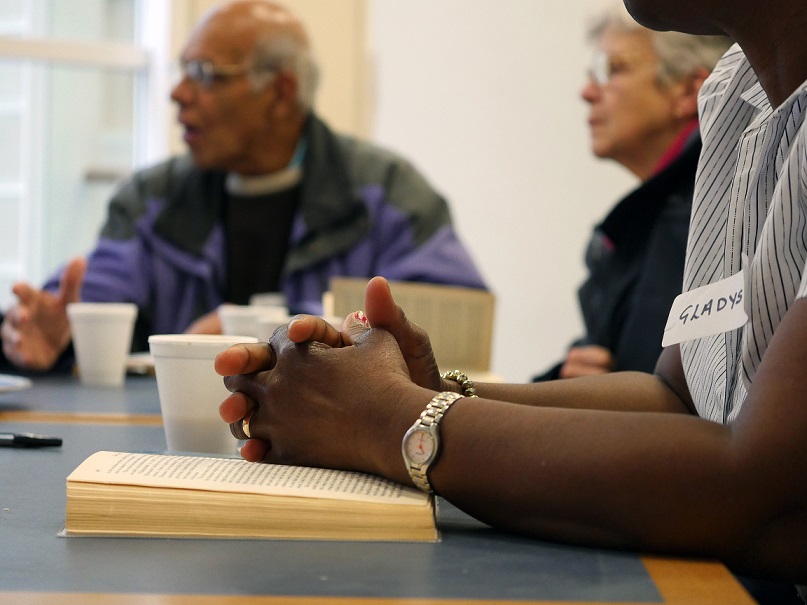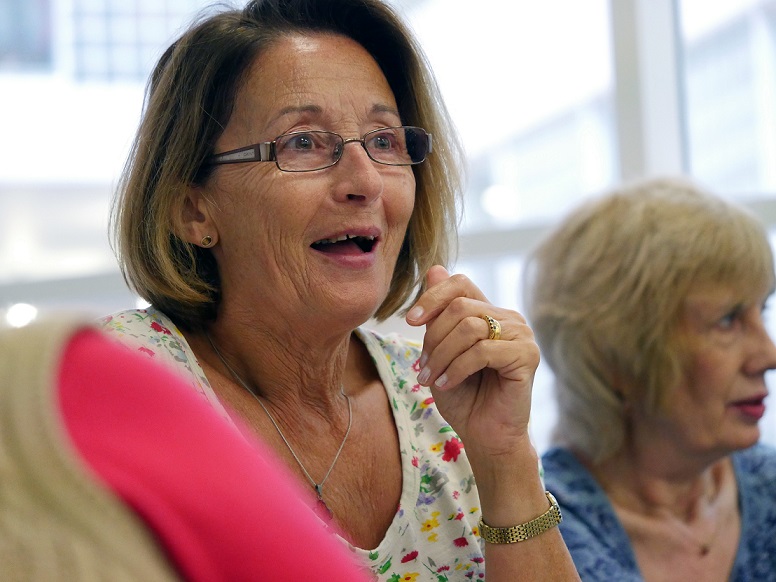Attending social groups can improve health and wellbeing after retirement
 New research has suggested that taking part in social activities, including book groups and church groups, is linked with improved levels of health and well-being for people after retirement - and can be as important to health as staying physically active.
New research has suggested that taking part in social activities, including book groups and church groups, is linked with improved levels of health and well-being for people after retirement - and can be as important to health as staying physically active.
Researchers from the University of Queensland tracked the health of over 400 people aged 50 and over in England for six years after they had retired, comparing their health and quality of life with people of the same age who were still working. The study, published in the online journal BMJ Open, found that membership of social groups was associated with quality of life, and for every group no longer attended after retirement there was a 10% drop in a person's quality of life six years later. As an example, if a person belonged to two separate social groups before they retired and continued with them for the next six years, their risk of death was found to be 2%. However this rises to 5% if they gave up membership of one group, and even higher at 12% if they stopped attending both.
The study also looked at how changes in exercise and physical health after retirement can affect a person's risk of death - and found that the impact was the same as giving up membership of social groups. The researchers suggested that "practical interventions should focus on helping retirees connect to groups and communities that are meaningful to them."
"I've got arthritis, which used to make me incredibly miserable, and I was always at the doctors moaning basically because I didn't have anything else to do really, but I find if you have another interest and start meeting new people it does have an impact on how you actually feel, and you do feel better because you've got something nicer in your life than you had before." - Shared Reading group member
"The group is the only time in my week that the conversation stimulates my mind and I never know what we will be talking about, it's always something different.” - Shared Reading group member at a community centre in Barnet
 It's great to hear the findings of this study encouraging social inclusion, which supports research on Shared Reading from our partners at the Centre for Research into Reading, Literature and Society (CRILS) at the University of Liverpool. The cultural value of Shared Reading groups as a participatory and voluntary experience was examined, both in the impact it has on individuals and in creating a community. A number of factors unique to Shared Reading - such as the 'liveness' of the literature being read solely within the group itself, and the creativity and emotional responses that emerge from reading in action - combine to give benefits to group members in their social and cultural lives, which include re-invigorating a sense of purpose and improving an individual's sense of value and meaning in life. Reading aloud in the groups offers a sense of achievement to members, as well as forging connections and friendships through discovering stories and poems together. The full report from CRILS is available to download on our website.
It's great to hear the findings of this study encouraging social inclusion, which supports research on Shared Reading from our partners at the Centre for Research into Reading, Literature and Society (CRILS) at the University of Liverpool. The cultural value of Shared Reading groups as a participatory and voluntary experience was examined, both in the impact it has on individuals and in creating a community. A number of factors unique to Shared Reading - such as the 'liveness' of the literature being read solely within the group itself, and the creativity and emotional responses that emerge from reading in action - combine to give benefits to group members in their social and cultural lives, which include re-invigorating a sense of purpose and improving an individual's sense of value and meaning in life. Reading aloud in the groups offers a sense of achievement to members, as well as forging connections and friendships through discovering stories and poems together. The full report from CRILS is available to download on our website.
Shared Reading helping people to live longer? These findings would suggest that it's at least a step in the right direction.
The new research from the University of Queensland can be accessed on BMJ Open.
Share
Related Articles

We’re Hiring! Join our Front of House Team
We're hosting a Recruitment Day at the Mansion House, Calderstones Park on Tuesday 16 April as we look to expand…

Meet Jeff the Chef
Jeff Gardner is Executive Chef at The Reader and creates the delicious menus for the Cafe, Garden Parties and private…

‘I Want My Hat Back’ The Storybarn reads along with BSL
We love welcoming new friends to our magical children’s play space the Storybarn in Calderstones Park for Birthday Parties and…


